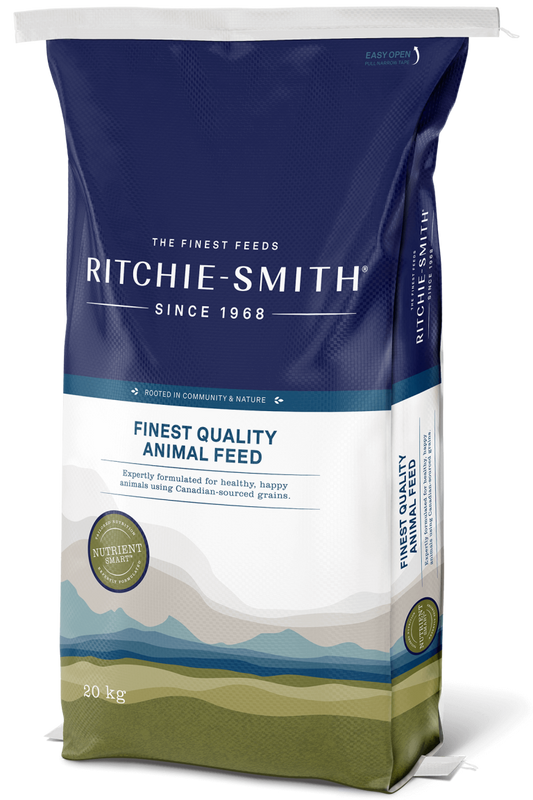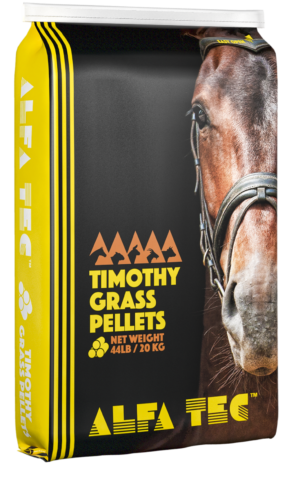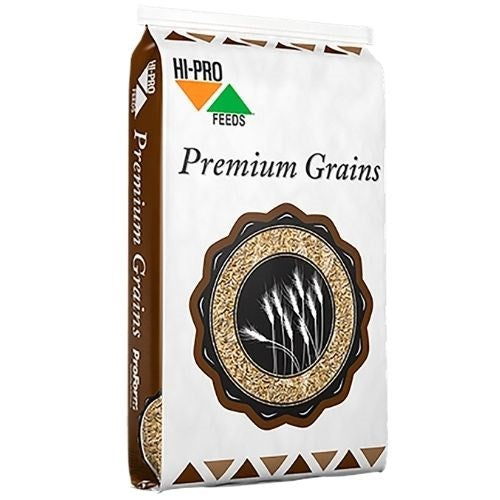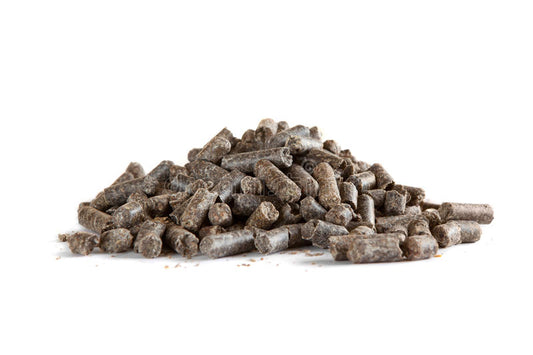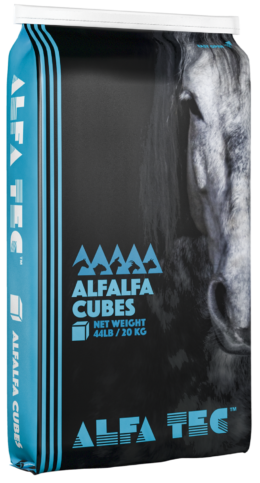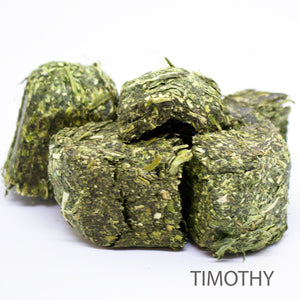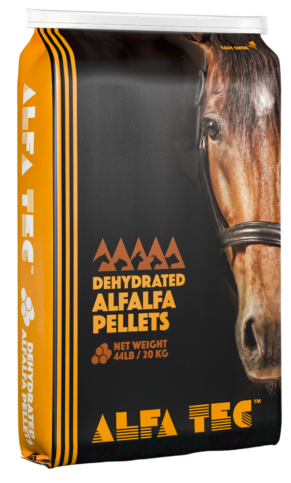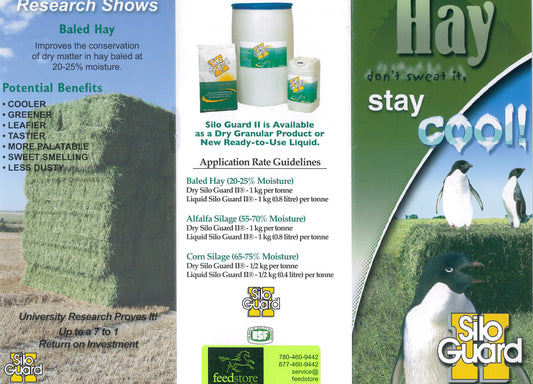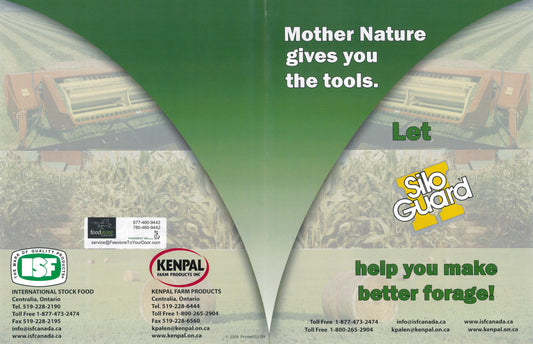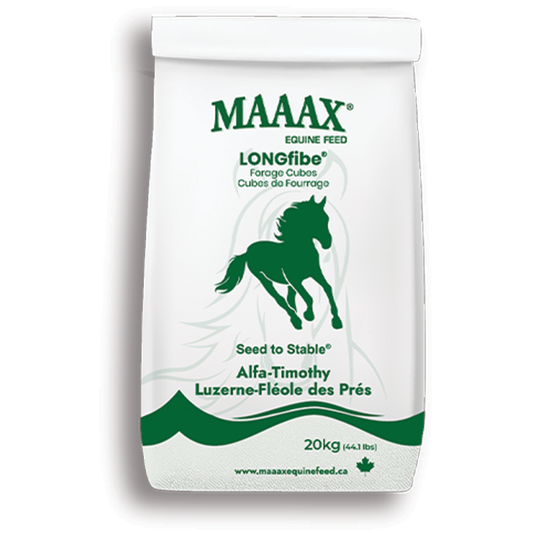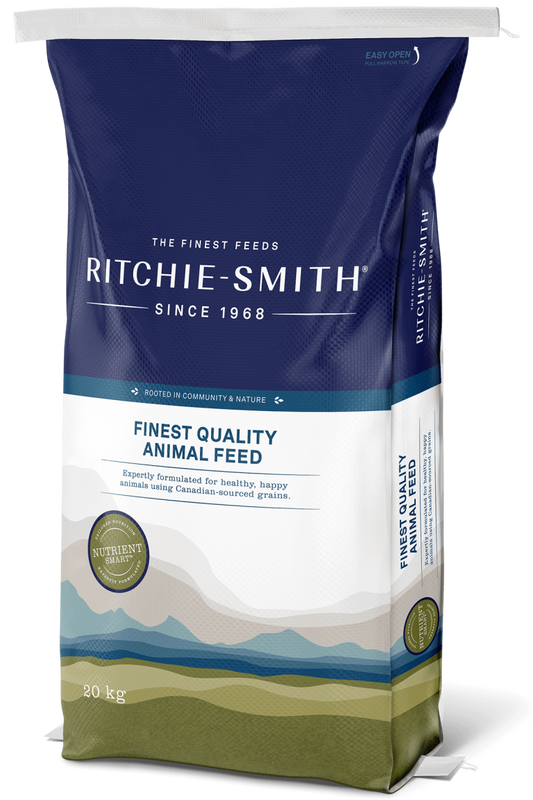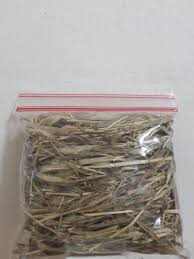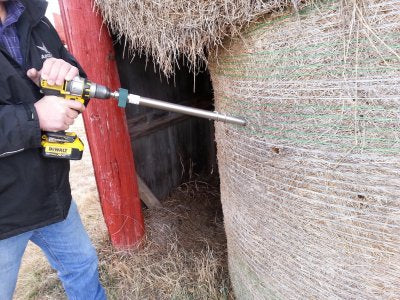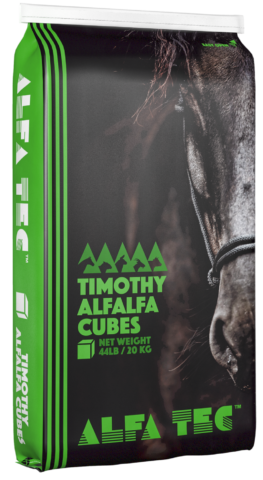Collection: Forages & Fibres
 Fibre is fundamental to the health of every horse, pony, donkey, goat, sheep and cattle. Their digestive system has evolved over thousands of years to digest it and lack of it can contribute to many of the health issues we see today. Fibre sources consist of hay, hay cubes, beet pulp, soy hull pellets, straw. Fibre/Forage should consist of 85-100% of the diet.
Fibre is fundamental to the health of every horse, pony, donkey, goat, sheep and cattle. Their digestive system has evolved over thousands of years to digest it and lack of it can contribute to many of the health issues we see today. Fibre sources consist of hay, hay cubes, beet pulp, soy hull pellets, straw. Fibre/Forage should consist of 85-100% of the diet.
When Hay is in short supply
Hay can be supplemented with forage pellets such as beet pulp, soy hull pellets, timothy grass pellets or alfalfa pellets.
Feeding hay cubes to horses can be a convenient and practical way to provide forage, especially in situations where traditional loose hay is not readily available or practical. Here are some reasons why horse owners might choose to feed hay cubes:
-
Consistency and Quality: Hay cubes are often produced with consistent quality and nutritional content. This can be beneficial when you want to ensure your horse receives a consistent diet.
-
Reduced Waste: Hay cubes produce less waste compared to loose hay, which can be scattered and soiled more easily. This can lead to cost savings and a cleaner feeding area.
-
Storage Convenience: Hay cubes are more compact and easier to store than loose hay. They take up less space and are less likely to attract pests like rodents.
-
Dust Control: Some horses have respiratory issues, and hay cubes can be a better option because they generate less dust compared to loose hay. Soaked hay cubes can be particularly helpful for horses with respiratory problems.
-
Portability: Hay cubes are easy to transport and can be a convenient option when traveling with your horse or taking them to events.
-
Control Over Intake: Hay cubes can make it easier to control a horse's intake, especially for those on restricted diets. You can measure and regulate the amount of hay cubes more precisely.
-
Convenience: Feeding hay cubes can save time, as they require less handling and preparation than loose hay. This can be especially helpful for busy horse owners.
-
Dental Health: For horses with dental issues that make chewing traditional hay difficult, hay cubes can be soaked to make them softer and easier to consume.
It's important to note that not all horses may readily accept hay cubes, and the transition from loose hay to cubes should be gradual to avoid digestive upset. It is important when hay cubes make up the greater portion of the horses fibre diet that they be fed multiple times during the day. Additionally, the type of hay cubes should be chosen based on the horse's nutritional requirements and dietary needs.
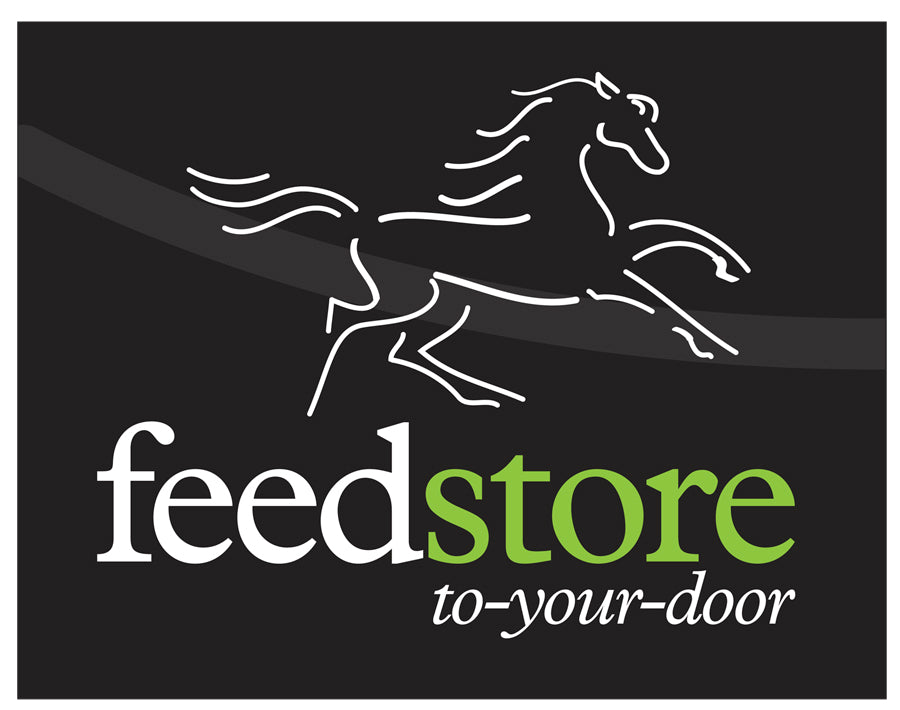
 Fibre is fundamental to the health of every horse, pony, donkey, goat, sheep and cattle. Their digestive system has evolved over thousands of years to digest it and lack of it can contribute to many of the health issues we see today. Fibre sources consist of hay, hay cubes, beet pulp, soy hull pellets, straw. Fibre/Forage should consist of 85-100% of the diet.
Fibre is fundamental to the health of every horse, pony, donkey, goat, sheep and cattle. Their digestive system has evolved over thousands of years to digest it and lack of it can contribute to many of the health issues we see today. Fibre sources consist of hay, hay cubes, beet pulp, soy hull pellets, straw. Fibre/Forage should consist of 85-100% of the diet. 
